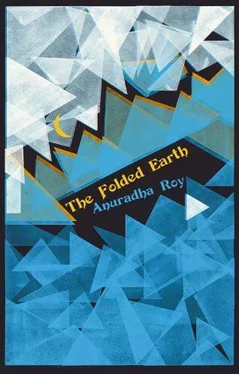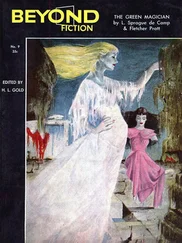Diwan Sahib wanted us near him all the time as if he could not afford to lose a minute. “Why do you go home to that cottage of yours?” he would say to me. “Just colonise one of the bedrooms in this house.” Veer did not look up from his computer, but he added in an undertone: “Take mine.” Aloud, he said to Diwan Sahib: “The cantonment sent a notice that the lease for this house needs renewing. Let’s dig out the documents and I’ll get that done while I’m here. You might lose the house if we don’t get down to it now.”
“Such efficiency,” Diwan Sahib said, “You make me feel old and tired. Why would I need to renew the lease? There are still a few years left of it, and if I can prevent Qureshi carting me off to hospital again if I so much as cough, I hope I’ll never need to renew anything.”
The General now came to visit Diwan Sahib much more often than before. He said he had realised during Diwan Sahib’s illness that nobody else in Ranikhet was as close to him in years, although at a mere eighty-seven Diwan Sahib was but a stripling in the General’s eyes. “Still, Diwan Sahib,” he said, “who but you and I remember first-hand the accession of the princely states to India? The way Nehru wrested Junagadh, Hyderabad, Goa from the jaws of the enemy — all with the help of the Indian Army. How men of our generation have built this country, the sacrifices we have made. Only you and I know, Diwan Sahib.”
Reminiscing made the General gloomier than ever about the present and he poured out larger measures of rum than before. What he observed did not please him. “No, Sir, there is nothing to smile about,” he said of the elections that were now only a few weeks away. “On one side there is a boy still wet behind the ears. On the other an old rogue who thinks the only way to get votes is to make Hindus hate everyone else. There are no statesmen now. None that you or I would be willing to work for and die for, isn’t it, Diwan Sahib? I would have died willingly if Nehru had sent me off to fight. But now? What is the reason for this decay, Diwan Sahib? Tell me, what is the reason ?” Bozo, lying at his feet, would whine as he heard the familiar enquiry and the General would pat him down murmuring, “Not you, my boy, you are my only hope.”
In the bazaar, Ankit Rawat walked around like a man who had already won. He spoke of the things he would do in his first hundred days in Parliament. It was clear from the adoring crowds his meetings mustered that there was a good chance of his defeating the Nainital veteran, who had never lost an election. Umed Singh’s party was trying everything to deflect attention from Ankit’s triumphal march towards Delhi and Parliament. It organised singing competitions. It set up a tent where food was being distributed free to the poor. It was giving away cheap sweaters to village children.
It was not long before someone from our neck of the woods got wind of that meal tent.
Charu’s childhood friends Beena and Mitu, the blue-eyed twins, had been charity students of our school. Their father was a drunk who could not pay their fees. Their deaf-mute mother barely managed two meals a day from cleaning houses and washing people’s clothes. Earlier that year, when the twins turned fifteen, they had been sent off at the Church’s cost to a convent in Varanasi, where destitute, disabled girls were schooled and trained in vocational skills. They had gone that March with three new sets of clothes, and new books, largely paid for by Diwan Sahib.
They had returned to Ranikhet for their first holidays that October. The girls had got used to more food at the convent and were hungry all the time at home, where there was one sparse morning meal and another at sundown. One Sunday, wandering in the bazaar, they smelt poori-aloo and followed the scent like a spell.
The General, who believed in first-hand reconnaissance of the enemy, was at the tent at that time, waiting for Umed Singh’s next speech. He observed the girls enter the tent and sit in a corner, eating in quick, single-minded gulps. “The way to a poor man’s heart,” he reported later to Diwan Sahib, “is through his hungry stomach, of course.” To those unused to them, they were a fascinating spectacle. They were immediately noticed in the crowd. People stared. The girls looked the same, and their facial expressions reflected each other’s. Plaits of almost identical length framed their faces. Their mixed parentage had given their skin a lighter tint than most, and their hair was more chestnut than black. And there were those bright blue eyes.
The politician noticed them too. He stopped to pat their heads and speak to them as they ate. He rejoiced when he found they could only smile or nod in reply or gesture in a way nobody in that tent understood. He would help them, he announced in his speech. It was precisely the cause of the helpless poor in rural areas that his party was devoted to. His voice echoed down the street from loudspeakers fixed to lamp posts. He commanded a worker to go and find the girls’ parents and bring them to his meal-tent. “We will let them know their worries are over. Victory or defeat, our good work will start right now, and carry on forever. We will take charge of them from this moment.” At that point, someone took him aside and told him in a hurried whisper about the convent in Varanasi.
In his next speech, Umed Singh said St Hilda’s was trying to convert two illiterate, disabled girls who could not know better. At worst, he hinted between portentous pauses, the school authorities were perhaps trafficking girls. “Who knows what these girls are being trained in?” the politician thundered. “Why are the children of Hindu parents being sent to convents far away where nobody knows if they are being used as servants or slaves or worse? They will become Christian converts — this is an international conspiracy. They must be rescued.”
Soon after that speech, we received a circular from Miss Wilson summoning us to an Extraordinary Staff Meeting. She stood at the head of the table and made a sign of the cross before she began. Her voice was low and grave. The time had come, she said, for us to be tested. It was our turn to prove how we would cope with the provocation and adversity we were facing. Her students and teachers were at risk of physical harm. She could not rest as long as this threat persisted. The school was her child, she said, and we were her family, she had given her life for the Lord and for us, we were all she cared for.
At this several of the teachers looked at each other in disbelief. Behind her back, the younger teachers called her the Great Dictator and someone had once painted a pink toothbrush moustache onto the portrait of Miss Wilson that hung on the staffroom wall next to a laminated poster of the Vatican’s Pietà. It had needed nailpolish remover to clear it from the glass. Her latest pet, Joyce, the senior school’s newest teacher, had begun to mimic the way she ticked us off for our lapses: “Don’t make ex-kewses ! I accept no ex-kewse but death !”
For Joyce and for the other teachers at our school, Beena and Mitu were two among the numberless children who had passed through our classes. For Mrs Wilson it was a larger administrative anxiety. It was different for me. I remembered those desolate early years in Ranikhet when I would wait for them to arrive with Charu for our games of gitti, for the sound of their clinking pebbles to fill my empty house. The games always ended with Bisht Bakery’s cake or the tea and boiled eggs I made for them, which they finished in seconds, hardly pausing to chew or breathe for hunger. They would never again go through such hunger and deprivation. I was determined they would not.
The Brigadier was too high up in the pecking order for me to able to get an appointment with, so I went to see Mr Chauhan about it. Could he provide protection for the school until the elections were over? And could he ask the politician to tone down his speeches?
Читать дальше












